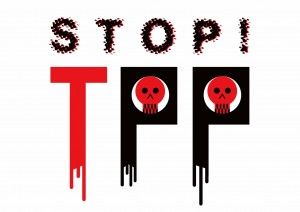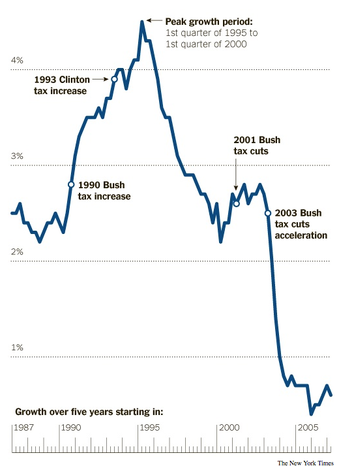Cross posted from The Stars Hollow Gazette
 Since 2007 when George W. Bush lurked in the Oval Office, the United States has been in secret negotiations to cut a trade agreement with several Pacific rim countries called the Trans-Pacific Partnership (TPP) Agreement. Those talks continued under President Barack Obama. I’ve written two articles, the first focused on the how TPP would affect the Internet. The second was on the content of the document leaked by Public Citizen in June of this year. That document (pdf), a work in progress, could without congressional approval hamper free speech on the Internet, reduce access to affordable medicines, deregulate environmental laws, and harm labor rights, not only in the US but around the world. It could give vast political power to multinational corporations in global trade including power over governments to make and enforce their laws.
Since 2007 when George W. Bush lurked in the Oval Office, the United States has been in secret negotiations to cut a trade agreement with several Pacific rim countries called the Trans-Pacific Partnership (TPP) Agreement. Those talks continued under President Barack Obama. I’ve written two articles, the first focused on the how TPP would affect the Internet. The second was on the content of the document leaked by Public Citizen in June of this year. That document (pdf), a work in progress, could without congressional approval hamper free speech on the Internet, reduce access to affordable medicines, deregulate environmental laws, and harm labor rights, not only in the US but around the world. It could give vast political power to multinational corporations in global trade including power over governments to make and enforce their laws.
In other words TPP is “NAFTA on steroids” and “will broadly strip rights from ordinary citizens in favor of global financial players to an unprecedented degree:”
Today, Amnesty International called on the participating countries, which currently include the U.S., Australia, Brunei Darussalam, Chile, Malaysia, New Zealand, Peru, Singapore, and Vietnam, to ensure that any new rules adhere to core principles of transparency and uphold human rights. [..]
“The Trans-Pacific Partnership trade pact has the potential to affect nearly every aspect of our lives as Americans,” said Allison Chin, President of the Sierra Club. “Alarmingly, however, is the opaque process in which the trade rules are being written. While hundreds of elite business executives have a hand in writing the rules that will affect American consumers, the public is largely left in the dark. This is a stealth affront to the principles of our democracy.”
Even the ACLU has become involved:
When asked how the TPP relates to the ACLU’s quest to fight for the protection of digital freedoms, the ACLU representatives said, “The TPP relates to the ACLU’s agenda of protecting free speech and privacy online, open government principles and ultimately protecting the Internet as the most open and innovative platform the world has seen.”
“While strong regulations are necessary to protect IP and promote innovation online, these must be crafted carefully and in a fully transparent fashion,” they continued. This is an incredibly important point which must be emphasized. In opposing CISPA, SOPA, the Protect IP Act (PIPA), ACTA, and the TPP, I am not saying that we should not protect intellectual property and online innovation.
To take such a position would be entirely nonsensical since I rely on such protections provided for my work as well.
“We are concerned that an overly broad policy to crackdown on copyright infringement would allow for the takedown of non-infringing content as well, in violation of the First Amendment, which was the same concern presented by SOPA and PIPA,” said the ACLU’s Fulton and Rottman.
“We also have strong concerns over any provision that would create legal incentives for ISPs to step up surveillance of Internet communications in search of suspected copyright infringement, which would potentially endanger the privacy of users. We also believe that whole site takedowns pose serious due process concerns,” they added.
In an article at Huffington Post Robert Naiman made this analogy about TPP’s impact on access to life saving medications:
It is reported that Stalin said, “The death of one person is a tragedy; the death of a million people is a statistic.” Today, a latter-day Stalin might say, “The death of four Yemeni civilians in a U.S. drone strike is a tragedy; the death of a million people because we let brand-name drug companies own U.S. ‘trade policy’ would be a statistic.” [..]
What we can say with confidence is this: In an agreement that USTR hopes will eventually cover 40 percent of the world’s population, the negotiating position of USTR has reneged on previous commitments the U.S. government has made to promote the ability of governments to pursue public health goals in “trade agreements” rather than undermining the ability of governments to pursue public health goals.
And regardless of anything else, that fact alone should be a national scandal. When, at long last, you nail acknowledgement of a fundamental human right to the wall, it should stay nailed there. We shouldn’t have to fight USTR on access to essential medicines every time they negotiate a new “trade deal.” USTR should cry uncle on this for all time, no matter how much money brand-name drug companies spend on lobbying and political campaigns.
Naiman also points out that this agreement could severely hamper the ability of NGO’s to treat and contain the AIDS epidemic, putting millions at risk. He noted an article posted by Médecins Sans Frontières/Doctors Without Borders in PLOS after the 19th International AIDS Conference that tool place August 2012 in Washington, DC>. MSF’s US Manager of the Access Campaign, Judit Rius Sanjuan related how this trade agreement threatens the prospects for an AIDS-free generation:
(To) achieve these goals, antiretroviral (ARV) drugs need to be available at affordable prices. Here’s where the contradiction comes in. The U.S. government is promoting restrictive trade policies that would make it much harder for patients, governments and treatment providers like MSF to access price-lowering generic drugs. [..]
Specifically, the U.S. is asking countries to create new, enhanced and longer patent and data monopoly protections for multinational pharmaceutical companies so they can keep competitors out of the market and charge higher prices for longer.
For example, the U.S. government wants TPP countries to lower the bar for patentability, thereby granting pharmaceutical companies new patents on variations of old drugs with little therapeutic benefit for patients. These provisions could stifle the production of less expensive generic forms. And, the U.S. would make it impossible to challenge a patent’s validity before it is granted – a commonly used tool that helps to prevent frivolous and unwarranted patenting and which is vital to fostering an IP system that rewards innovations benefiting patients. The U.S. demands also extend patent monopolies beyond the traditional 20-year period and make it harder for generics to get regulatory approval, which will serve to keep generics out and prop up drug prices for longer.
With these demands, U.S. is turning its back on existing commitments to promote public health in trade agreements and is undermining the sustainability of its own global health programs such as PEPFAR and international initiatives like the Global Fund to Fight AIDS, Tuberculosis and Malaria.
President Obama promised that his administration would be transparent, yet he negotiates this agreement behind closed doors. John Nichols, at The Nation said in his article that to show his worthiness to be reelected, the president should back up his “talk”, “walk the walk” and make this trade agreement transparent:
The secretiveness mirrors negotiations the led to the North American Free Trade Agreement and other deals that have been devastating to the American manufacturing sector. These are precisely the sort of agreements that take away the “level playing field” both Obama and Mitt Romney say they want for American workers. Yet they keep being negotiated by Republican and Democratic administrations because they are not just favored by Wall Street and the multinationals, they top priorities of the CEOs, hedge-fund managers and speculators who form the donor class of American politics. [..]
President Obama spoke in Charlotte about seeking “a future where we export more products and outsource fewer jobs.” Trade agreements play a critical role in determining that future. Good trade agreements, grounded in “fair trade” values and a commitment to aid the workers of the United States and other countries, produce good results. Bad trade agreements, grounded in “free trade” fantasies and the demands of Wall Street speculators and lobbyists for multinational corporations, produce bad results.
What Americans need to know is whether the TPP, which is being negotiated in their name but without their informed consent, is headed in a good or bad direction.
In Charlotte, President Obama declared, “You elected me to tell you the truth.”
It is time for Pres. Obama to make good on his promise about being transparent, open these negotiations to public scrutiny and tell the American people the truth.
He can start by ordering his trade representative to remove the cloak of secrecy, begin serious consultations with Congress and make TPP negotiations open and transparent.

 One of the first things you notice in the chart is that the American economy was not especially healthy even before the financial crisis began in late 2007. By 2007, remarkably, the economy was already on pace for its slowest decade of growth since World War II. The mediocre economic growth, in turn, brought mediocre job and income growth – and the crisis more than erased those gains.
One of the first things you notice in the chart is that the American economy was not especially healthy even before the financial crisis began in late 2007. By 2007, remarkably, the economy was already on pace for its slowest decade of growth since World War II. The mediocre economic growth, in turn, brought mediocre job and income growth – and the crisis more than erased those gains. Since 2007 when George W. Bush lurked in the Oval Office, the United States has been in secret negotiations to cut a trade agreement with several Pacific rim countries called the Trans-Pacific Partnership (TPP) Agreement. Those talks continued under President Barack Obama. I’ve written two articles,
Since 2007 when George W. Bush lurked in the Oval Office, the United States has been in secret negotiations to cut a trade agreement with several Pacific rim countries called the Trans-Pacific Partnership (TPP) Agreement. Those talks continued under President Barack Obama. I’ve written two articles,